#everyone is queer in elmore
Explore tagged Tumblr posts
Text

#idk man...#tawog fanart#tawog#rob#the amazing world of gumball#tawog rob#doodle#gumball#they<333#rob is genderflux#gumball is genderfluid#change my mind#everyone is queer in elmore#bahhahahahahaha#i love them so much#the boys love wearing skirts hehehe#headcanon#gumrob#maybe???
140 notes
·
View notes
Text
Book Rec
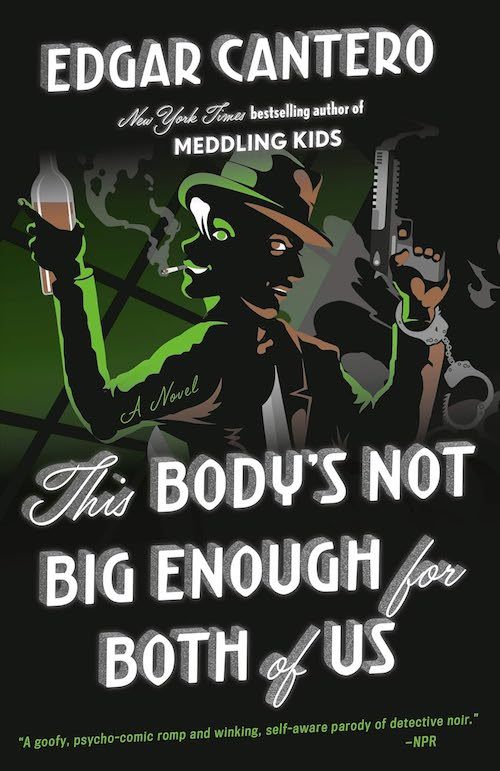
In the next ten seconds, more things happened than in ten hours' worth of Danish cinema.
This gem of a line appears in the middle of a fight sequence between the hero(es) and a katana-weilding ninja, which isn't even remotely the wildest thing to happen in this homage to/sendup of hardboiled noir.
This very funny, very meta detective novel opens with a quote from Elmore Leonard followed immediately by "fuck him." It then runs through every cliché of the genre, gleefully wringing them of all they have before throwing them out the window. Yet somehow it also manages to contain an actual mystery, signposting its twists and turns without ever disappointing.
The highlight of the book is the main characters, a pair of twins who share a single body. Adrian is brilliant and emotionless, Zooey is a loose cannon with a wide-ranging libido. Together they're A. Z. Kimrean, Private Eyes: he does the analysis and she does the wisecracks.
This is a great premise for a detective who's constantly bickering with themselves, but it also makes the book unquestionably queer. Kimrean defies gender and sexuality (he's asexual, she's into everyone, which is as awkward as you think). And Kimrean isn't the only queer character in the book.
It's a completely gonzo, ultra meta, comically bonkers detective story, but there's something real at the heart of it. Something about the difficulty of balancing competing impulses within one body, including how—and if—to love, whether others or themselves.
14 notes
·
View notes
Note
Are you open to giving your opinion on The Girls On The Bus?
IMHO take away the swearing and the occasional s*x scene, you can tell people of the CW were involved. And so many other things that I don’t want to spoil in case not everyone has see it but I wonder how you (a professional) sees it.
Okie dokie. So.
I've had this Anon/Answer as a draft for a while. Was torn on whether to discuss it. But now that it's cancelled, I don't feel like this would be discouraging anybody from tuning in and thus harming the show or those involved in any way.
Keep in mind, I'm entitled to my opinions -- yes even without having watched it (yet?) because it's all tied into why I ultimately didn't watch it in the first place.
Early on, I remember being... wary about the creative direction of the show overall and saying to somebody what I bet each character would wind up being about/representing, what the show would likely focus on and the various dynamics between the characters, and how the representation would be treated. I'd hoped to be wrong in terms of the predictability factor, alas...
From what I read of reviews and saw in fan-posted clips, it turned out that I was (unfortunately) pretty spot on. For me personally -- that makes a show difficult to tune into if something else doesn't outweigh it. If I already know exactly what to expect and it involves less than flattering predictions regarding superficial feminism + overdone tropes and cliches + an overall concept that feels like a beat down with IRL non-stop coverage of political insanity the last 8 damn years? Thaaat's a hard one for me.
As far as cast though? Benoist is an exceptional, underrated, incredible talent. And some of the clips of her performance seemed Emmy-worthy (though sadly that didn't happen for her this time). Gugino is also fantastic, and an icon. Meanwhile Elmore is profusely enjoyable and talented and Behnam is such a break out and refreshing energy. And all together, they seemed to have amazing chemistry on screen and formed bonds IRL that are lovely.
Sadly though, the show's feminism seemed to be the equivalent of a "girl boss" tote bag. Superficial at best. Characters and the show constantly ragging on men and the double standards of men vs women, yet ultimately still centering men and the influence of men in and even over their lives when it gets down to brass tacks. My whole thing is: everything doesn't have to be a feminist statement. But don't yell about how your show is all about "girl power" and then -- do the opposite, in many ways. SGCW used to do that all the time. And since many of the same people were involved here creatively... well...
The show even hung a huge focus of its initial marketing on "omg we have a shirtless 50 year old white man that white millennial women were in love with in the early 2000s hehehe" -- which was so utterly bizarre and cringe. And having their invited influencer group for the screening be a group of privileged, mostly straight, cis, white Millennials and Gen Z women from TikTok was a red flag.
Yes, straight cis white Millennial and Gen Z women deserve to see themselves too, 100%. But, c'mon. And yes, not everything is always for everybody. And that’s fine! But then they should’ve better considered the casting and what audience they were automatically bringing in from day one. Between Benoist, Gugino and Tala — that’s built in queer wlw fandoms right off the bat that would (and tried to) show up and champion the series if they had true reason to. Instead the show had limited, and as always ancillary, queer rep that apparently goes nowhere and ends rather badly, from what other fans have indicated. Drop me a line if that's incorrect though.
Look, yes, many queer fans were making jokes and expressing valid frustrations about the lead character giving QUEER AS HELL vibes all over the place yet being presented as seemingly straight, but what else is new from some of the creatives involved here.
It was further disappointing to see TPTB do a group interview where they said how they a.) tried to figure out who should get pregnant while on the campaign trail and need the abortion pills and ultimately decided on Sadie and b.) joked that they then debated "Well, Sadie HAS to sleep with SOMEBODY." to get there. Which just means the core "love story" they attempt to create for Sadie around not liking the guy at first other than as a hookup and then suddenly expressing deep feelings for him and bearing her soul a few episodes later wasn't exactly organic nor earned in conception nor execution.
It sounds like they just had a checklist of "issues" to address and then wrote around that, shaping characters to fit the story, instead of the other way around. So what might've worked better for the characters was pushed aside to complete the 'statements' they wanted to make. SGCW used to do that also. They were always trying so hard to make the characters fit the plot rather than the plot work alongside or even due to the characters -- which is why it so often fell flat, felt empty and had characters being poorly written, contradictory, etc.
On this front btw, someone had complained to me that for one big ep, Sadie was going through it, and whereas one would think she would normally go to her mentor and friend Grace (or one of the other girls on the damn bus, hello), the ep kept 'em apart so she could open up to a guy she previously rejected and it further their relationship. Once again, it's always a tiresome tactic when you have to keep women apart to prop up a man or a male/female dynamic because you know a character would have been more likely to go have that breakdown and emotional moment elsewhere, but you've gotta forcibly shove in the "development" of a hetero relationship at the expense of so much else.
Next, having a Black woman represent a political party that has built itself upon racism, homophobia and sexism and then using her and those arcs to play up the "both sides have good people" angle right now is tough to stomach for the kind of fans who were tuning in for Benoist, Gugino and others. It's not "enlightened" to say "Let's be pals with a bigot who wants women's rights stripped away because -- humanity!" I mean, we're all human and can't just quick and easy cut people out of our lives who have different beliefs, even if those beliefs are absolutely painfully awful -- but I don't think anyone is really exploring these issue deeply and appropriately enough yet.
I mean, "Aw, Kimberlyn drove Sadie to her abortion, thus showing that even if she personally didn't agree with it, she still cares and they can still be friends." is a sweet sentiment, in theory. Until you dig a little deeper and remember that Kimberlyn is not only voting for but actively helping promote and put power in the hands of people who stripped Sadie of her rights to have that abortion in that state in the first place! Stuff like this is so irritatingly disingenuous... or else just tone deaf and clueless. Pick whichever.
I will say, in closing, that it seemed a big portion of the apparently limited audience that was tuning in -- were queer fans who followed Benoist from Supergirl, and Tala from LoT, and who love Gugino, etc. And this is where it is so damn important know your audience based on who you're casting and what fans they're bringing to the table. Most discussion of the show on Twitter for instance, had been around queer Sadie edits and even a crackship with someone from another show + fans thirsting after Sadie's queer vibes and outfits, etc -- and those fans generated more interest around the show / buzz than anybody, yet there had been no direct acknowledgment nor gratitude by anyone involved with the show for tuning in and creating fan content and edits and art and gifs and hyping a show that otherwise has very little interest. And all that told those fans is: this show isn't for you, and we don't care if you're our only audience, we were aiming for something else. And hey -- aim for whomever you want! Tell your stories! But then don't be surprised when no one cares in this climate. I mean, LGBTQ fans and creators have to deal with this constantly when trying to "appeal to mass audiences", so, welcome to our world.
Additionally, TPTB were not even hyping the canon rep they did have, in Lola, ffs! Instead, everyone just focused the occasional praise from mostly straight white journalists giving it the obscure positive review, or family and friends pushing the show out of personal support.
It was so exhausting to see, because it involved a lot of the same creatives who previously also ignored LGBTQ fans carrying other previous shows with organic marketing in the past. Ignoring what limited audience you have will never be a recipe for long-term success. And with many of the people involved coming from The CW, and many at the top actually part of the LGBTQ community themselves -- you'd think they'd get that by now. Alas.
Anyway, I think most people involved in this show meant well, and worked hard on this one. And I hear they did do a couple great things -- like with Lola's family dynamic and background exploration, some of the humorous moments, etc. And kudos on getting a show made and on air -- because now more than even that is a damn near miracle. But because it's so hard to make happen now, that's really why I tend to be a little more discerning as well as having heightened expectations that representation be as fully developed and organic and self-aware as possible, and that talent not be wasted on cliches and superficiality. Audiences and actors deserve better, IMO.
In closing, I'm sure in the future I'll break my own standards on a project, whether by accident or by order from above, and people will feel I've flopped or been hypocritical given my current and past takes, and that's fine. I'll try to hear people out, adapt and grow and/or fight harder, where needed. But to see the same people get the same opportunities to make the same kind of things that get the same disappointed reactions/flop -- and never learn? Is tiresome.
Especially when the cast, fans, etc deserve better.
The end.
10 notes
·
View notes
Text
Feminist Vampires: Don’t Invite Mainstream Audiences Inside! (Madi Mackey)
youtube
Bit, written and directed by Brad Michael Elmore, is the story of a young trans woman named Laurel who moves to Los Angeles and finds herself mixed up in a friend group of female vampires. She is quickly turned into a vampire herself and thrust into their world. Duke, the leader of the girl gang, implements some very strict rules for the group. The most important rule is to never turn a man into a vampire, stating that they can’t handle the power. The film follows the five young women as they navigate their lives as both vampires and members of a bustling Los Angeles night life. The drama comes to a peak when Laurel accidentally bites her brother and has to decide between saving his life and following Duke’s rules.
The film is an excellent example of modern day intersectional feminism. The core group of women is very diverse, representing African American, latina, butch, and transgender identities. They are all women-loving women in some sense, though their specific sexualities are never detailed. They are unflinchingly focused on retaining their power and their sisterhood by refusing to let a man into their groups and forbidding any usage of their mind-influencing powers on each other. However, the film is not perfect, and does not hold up to much scrutiny from a queer perspective. Duke, the previously mentioned leader, is also the only white girl in the group. Their hatred toward men could push the idea that all feminists hate men, further isolating the movement. Finally, the film does not mention class or any struggles associated with the marginalized communities the characters belong to, reducing the film to a post-gender, post-sexuality world. For these shortcomings, I argue that Bit is a great stride in the queer movie industry, but it misses the mark in many categories, and could therefore cause more damage to the trans, lesbian, and feminist communities than the positive impacts of such representation could outweigh, if it were to leave the arthouse and break into the mainstream.
One major theme in Bit is intersectional feminism. As mentioned before, the group of vampires is quite diverse, but this inclusion is only skin-deep. Their dynamic still enforces white, middle-class homonormativity. The girl with the most power is white and cisgender, and all of the girls are able-bodied and middle- to upper-class. Joyrich explains that television industries must continually portray homonormativity to maintain profits, and the same can be said for the film industry (2013, p. 5). Although this is a low-budget film that premiered at an independent film festival, the director, Elmore, stated in an interview that one of his main goals was for the movie to reach a larger audience of at-home viewers (Dunagan, 2019). His yearning for mass reception might have caused him to reproduce homonormativity for the film to be more palatable and, therefore, more profitable.
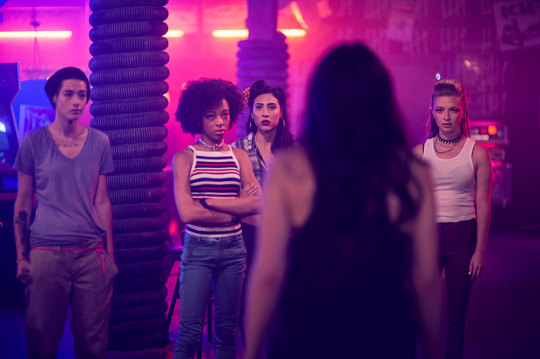
This is not the only flaw within the production practices for this film. Similar to criticisms regarding Pose and The Death and Life of Marsha P. Johnson, Elmore is a cis white man who took it upon himself to tell a queer story. By doing so, he took production resources and material benefits from its popularity away from the trans, lesbian, and POC communities who live the stories that he is telling (Tourmaline, 2017). Elmore explains that he read multiple theoretical texts and memoirs regarding gender while writing the script, and then had a close, gender non-conforming friend of his approve it before he, “felt more comfortable to show it to people in and around that conversation and community that I wasn’t close to” (Dunagan, 2019). While he did a fair bit of research into the community before creating the film, this isn’t the same as being a member of the community. Cavalcante explains this difference as a split between identifying with and identifying as a character, with identifying as a character always hitting closer to home and being more personal (2017, p. 14). Although Cavalcante makes this distinction in regards to audience reception, I believe it can be applied to production as well, and how Elmore wrote characters he could identify with, whereas a trans or POC writer could have written more personal characters that they identify as. Because Elmore is not trans or a POC, he needed to enforce homonormativity in his film in order to create characters that he identified with, as he has never lived as someone on the margins.

(Brad Michael Elmore, writer and producer of Bit)
Still, the production methods and content of the movie themselves could absolutely be described as queer. Benshoff & Griffin describe new queer cinema as films that have low-budgets, usually remain in the arthouse, and show the inadequacy of labels, instead focusing on the social discourses surrounding gender, race, and class (2004, pp. 11-12). Bit checks all of these boxes, even offering some helpful insights into social discourses. When Laurel, the transgender protagonist, is turned into a vampire, Duke tells her that their number one rule is to absolutely never turn a man. Laurel looks worried and asks, “What about me?” to which Duke responds, “Never even crossed my mind” (Elmore, 2019). Her immediate acceptance of Laurel’s identity expresses a consistent mood throughout the entire movie. Laurel’s transition and identity are never remarked in more explicit terms, and the sexuality and ethnicity of the other women are all treated with the same unspoken acceptance. The only identities that are ever mentioned are class and sex; Laurel asks one of the girls how they afford to live in L.A., and anyone who identifies as a man is immediately treated with contempt.
youtube
(watch video until 42:50)
While these approaches to intersectional identity may function well within the underground audience of new queer cinema, they could cause problems if Bit were to hit the mainstream. As Tongson explains, media representations help to produce our material realities; we rely on media to understand identities that we don’t know in the real world (2017, p. 158)). By ignoring the struggles of marginalized communities in the film, Bit raises more questions than it answers for viewers who are unfamiliar with these communities. Their confusion could cause these people on the margins to become cultural interpreters and explain their communities to those who don’t understand. Some see this as an opportunity to share their life experiences and cross cultural bridges; for others, it can become a burden of representation and they may lose a feeling of privacy (Cavalcante, 2017, p. 11). Bit could be seen as a welcome break from tragic representations for people within the trans community. Conversely, Elmore’s silence on these issues could also lead mainstream audiences to believing that marginalized communities do not face any struggles in modern America, and therefore lose some empathy.
This mediated understanding of reality could also be greatly detrimental to the feminist movement if it were to hit the mainstream. While I loved the explicitly feminist tone of the film, other audiences could find it off-putting and apply Bit’s ideology to all real-life feminists. The group of women in this film are quite outspoken around their distrust and distaste toward men. This could be applied to feminists, who are already called “man haters” in the real world as an attempt to invalidate their arguments. Elmore could be adding fuel to this fire by depicting feminists as exactly what the mainstream fears them to be.
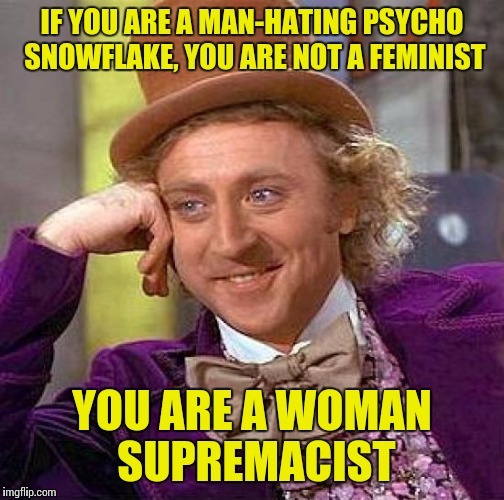
Simultaneously, this bold approach to intersectional feminism is exactly why I, and many other queer viewers, love this film. My own subject positionality influences my understanding of Bit, just as those of mainstream audiences would make them feel differently about the film. I am a college-educated, middle-class, white, bisexual woman. I am also an outspoken feminist and socialist. All of my converging identities influence my view on this film and the opinions I have on its themes. As a young person who spends a lot of time in feminist spaces online, I felt such a rush while watching this film and hearing them directly saying things like, “Men can’t handle power. They have it already, and look at what they have done with it” (Elmore, 2019). A lot of people online say things about hating men, and I know from my own personal experience that the argument is so nuanced that it is simply easier to say “kill all men” than it is to explain what feminism really stands for and how it is, in fact, not simply man-hating. I love that this film expects the viewer to have this same knowledge, and can therefore say things like this without needing to defend itself and explain all of the nuance behind such a statement.
My status as middle-class and a socialist also have a great impact on my subject positionality and interpretation of Bit. Coming from a middle-class family and city, everything in the movie seemed normal to me. I was able to identify with the characters’ struggles, as they didn’t have anything to do with money or family issues. However, I could see this posing an issue for people who are struggling financially or with their family dynamic. To make up for this, the film has a lot of discourse regarding the redistribution of power and resources. Downward redistribution is a key tenant of leftism, so this movie displays clear leftist ideologies from a socio-political perspective (Duggan, 2002, p.XVI). We can see this in lines like, “How would you like to hold the keys to the kingdom for a change?” when Duke is talking to Laurel about turning, and at the very end of the movie, when Laurel’s brother asks her what they should do next and she responds, “Maybe what everyone with power should do and never does: share it” (Elmore, 2019).
youtube
(watch video until 1:30:00)
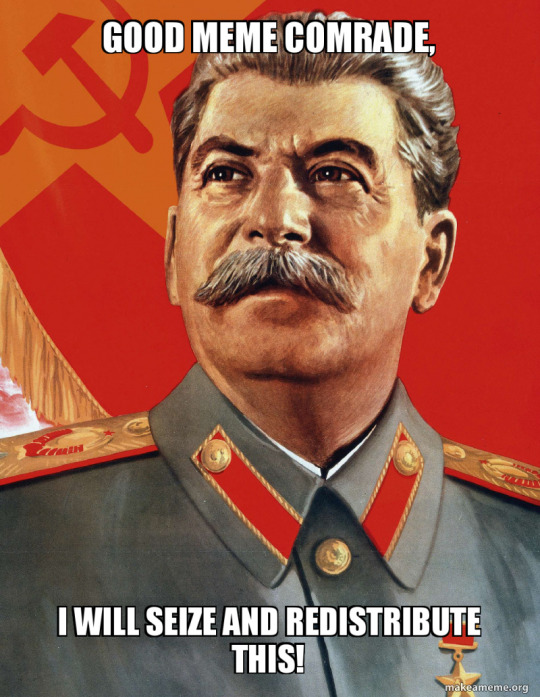
Finally, watching this film from the subject positionality of a woman greatly influenced my interpretation and reaction. At first, I was appalled by the group of girls and how nonchalantly they killed people, especially men. Laurel was written to have the same feelings of shock and disgust. So, when Duke said, “Our role is secondary. Our bodies are suspect, alien, other. We’re made to be monstrous, so let’s be monsters,” (Elmore, 2019) that was enough of an explanation for Laurel, and for myself, to become sympathetic to their cause. I have been personally affected by the feelings of otherness and being secondary that Duke lists, so this was a perfect line to change my opinion on their actions. However, if a man were to watch this film, especially if he were not to be a feminist, he might not be so sympathetic because he does not have the same experiences and understanding of what it is like to live in this world.
youtube
(watch until 41:12)
Bit is a film that crosses many boundaries, while still upholding some homonormativity for the sake of profit and consumption. It was written with the expectation of an audience that is knowledgeable of marginalized communities and social issues, making it thoroughly enjoyable to watch from a queer perspective. However, if the film were to break into the mainstream spotlight, its lack of nuance could cause harmful backlash toward trans communities, people of color, woman-loving women, and feminist movements.
References
Benshoff, H. M. & Griffin, S. (2004). Queer cinema: The film reader. Psychology Press.
Cavalcante, A. (2017). Breaking into transgender life: Transgender audiences’ experiences with ‘first of its kind’ visibility in popular media. Communication, Culture & Critique, 10(3), 538-555. https://doi.org/10.1111/cccr.12165
Duggan, L. (2002). Introduction. In The twilight of equality? Neoliberalism, cultural politics, and the attack on democracy (pp. X-XXII). Beacon Press.
Dunagan, R. (2019, August 2). Interview: A talk with Brad Michael Elmore, Director of OUTFEST’s ‘Bit’. Flipscreen. https://flipscreened.com/2019/08/02/interview-a-talk-with-brad-michael-elmore-director-of-outfests-bit/
Elmore, B. M. (Director). (2019). Bit [Film]. Vertical Entertainment.
Joyrich, L. (2013). Queer television studies: Currents, flows, and (main)streams. Cinema Journal, 53(2), 133-139. https://doi.org/10.1353/cj.2014.0015
Tongson, K. (2017). Queer. In L. Ouellette & J. Gray (Eds.), Keywords for media studies (pp. 157-160). NYU Press.
Tourmaline. (2017, October 11). Tourmaline on transgender storytelling, David France, and the Netflix Marsha P. Johnson Documentary. Teen Vogue. https://www.teenvogue.com/story/reina-gossett-marsha-p-johnson-op-ed
6 notes
·
View notes
Text
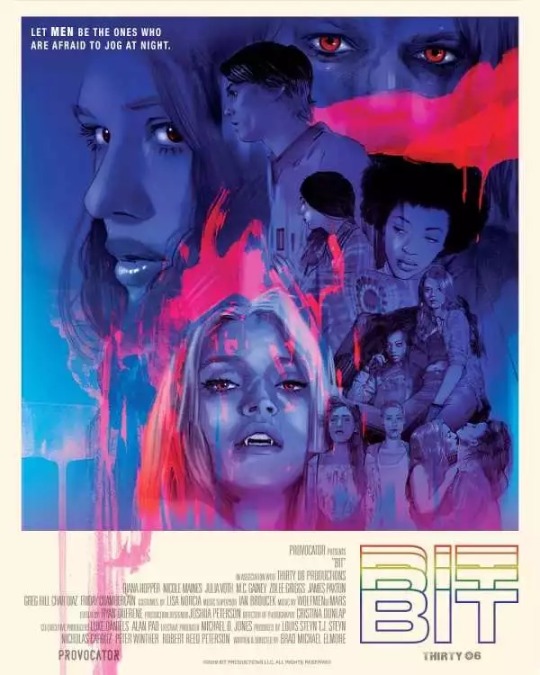
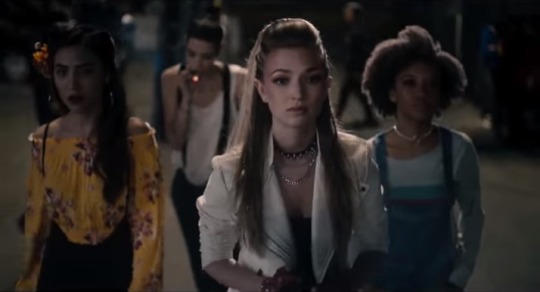
Bit
2019/dir. Brad Michael Elmore/90 min
2.5/5★ 6/16/22
i like some parts of this film a lot! some parts i was fine with and some i’m not nuts about.
the cinematography, editing, costuming; all good. they do that thing occasionally where they change the focus of the camera to make the background look like it’s zooming out while staying focused on an actor’s face - like they are being Effected - and there’s one left to right wipe shaped around foreground elements but that’s about it for fun editing. i was kind of expecting more from how funky the poster looked but books and covers and all.
i also think the premise is kind of #girlboss, in a negative and positive way. i’ve definitely been that person who was like “yeah i want a group of gay vamps to kill homophobes!” but having got it i’m not obsessed. i actually liked the ending where the big evil vamp came back and was like “you are not immune to in-group manipulation” because it made it more interesting to think about, and yeah queer groups are not immune to infighting and abuses of power. and how sometimes people trying to recover things they’ve lost end up hurting other people.
in a similar way i feel conflicted about but also interested in mark’s monologue about being the sibling on the side. he’s definitely trying to hurt laurel at least a little, but hearing about his experience gave me some things to think about.
but the film is more typical vampire coming of age story where the vampires are girls who are dating (or whatever) each other. so in that sense it was alright!
i really hate to say it but i kind of have to, i wasn’t a big fan of nicole amber maines’ acting. she looked great, her voice is clear and sounds good, and she got the blocking but i think she needed a little more time. i’m definitely glad she got this role and i can’t wait to see the stuff she acts in later!
EDIT: oh also i forgot to talk about the final scene. laurel and mark are talking and they decide that maybe it would be better if everyone was turned into a vampire. it feels like a very syndrome-from-the-incredibles conclusion, and doesn’t seem right after the two of them had just been saying that they were turned without their consent. it feels like maybe it was supposed to be a conclusion drawn from having vampirism be a metaphor for queerness or something, but it’s the only place in the film where it does that. except for maybe when duke is giving laurel the pitch and talks about how you don’t have to give up your family, which feels like a modern evolution in queer acceptance (you can be queer and still have your family, versus the old trope of coming out and having to leave everything behind).
#mine#review#bit#another ok one#eventually i'll have to backlog the movies i wrote two sentences for#long
0 notes
Text
RE: Bit
Over the past few years, I have been getting into horror movies. The potential of the genre to be political, subversive and overtly queer keeps me wanting to pry my fingers open just a little bit whenever I get too scared. Which is why I was so excited when I first heard about the movie “Bit” making rounds and winning awards on the festival circuit. I was promised a film starring a trans actress playing a trans character in a movie about lesbian vampires. The trailer even promised that the film would talk about gender! When it showed up on streaming platforms recently, I added it to my list with a quickness. Spoiler synopsis in the next paragraph so skip that if you care.
Laurel is a trans teenager that has just graduated high school in suburban Oregon. While she figures out her plans, she goes to spend the summer with her brother in LA. During her first night, she goes out to a club with her brother and falls in with a group of cool lesbians who happen to be vampires. After an awkward hookup with one of the women, she is bitten but the leader of the group, Duke, stops the feeding before she dies causing her to become a vampire. Laurel wakes up in a dumpster the next morning and goes through the awkward “why does the sun hurt” phase before reuniting with the cool lesbians. They offer her a choice to either take “the cure” or become one of them. She does and becomes a cool vampire lesbian. Along the way, she learns Duke’s backstory of having been enslaved by an elder vampire named “The Master” who she ultimately burned to death. She saved his heart though and eating it piece by piece allows her to access his powers including the same mind control that he used to enslave her. Laurel refuses to feed, which bothers the increasingly controlling Duke, until her out on control hunger causes her to nearly kill her brother feeding on him during an argument. She goes back to the group begging for “the cure” only to find it never existed. A fight between her and the other girls ultimately leads to The Master’s resurrection only for the girls to defeat him again. The film ends with Duke being thrown in vampire prison and Laurel poorly reassuring her now-turned brother that it’s going to be ok and she wants to make a world where everyone is a vampire. The girls, now without Duke, are shown eating pieces of The Master’s heart and the screen fades to black.
It’s a tight low-budget genre film, but it was marketed as an intersectional feminist horror film. As a trans lesbian, the promise of representation was a main driver in me even spending the money to rent it. I was left wanting and increasingly frustrated the more I thought about the movie. First off, Luarel’s trans status is never directly mentioned. There are nods throughout like her having issues getting into a bar with a, I can only assume, pre-transition photo ID. Since the vampires have a rule about never turning a man into a vampire, she asks if that includes her and is quickly reassured that she is a woman. In the opening party scene, a drunk classmate comes up to her to tell her how brave he thinks she is. I picked up on all these nods, but I also could totally see someone watching this movie and completely missing that she’s trans. In an interview, the director stated that he wanted to make a genre movie with a trans character that didn’t focus on how trans they are. That’s all well and good, but you’re also pushing your movie as an example of trans representation without ever directly saying it. If you could easily make this character cis without changing the story, is it still meaningful representation?
Second, Laurel is a shitty person. She’s manipulative, selfish and ignores the people around her. One of the driving issues that leads to her confrontation with her brother is how she has been ignoring her family and friends since moving to LA. Her parents and brother are incredibly supportive of her transition. When she first starts acting strange, her mother doesn’t even judge her for potentially partying too hard. One of her friends, who is coded as a gay man, has a falling out with her because she has been ignoring his increasingly desperate attempts to get in touch with her. While going though his own issues, this rejection by his best friend causes him to attempt suicide. Her brother even admits that he moved to LA because her transition was smothering his ability to get his parents to acknowledge his own issues. Despite that he still does everything he can to support her. At the emotional climax of the film, Laurel deflects, denies and faces no consequences for it. As a trans women that lost friends and family to transition, I couldn’t help but feel like she is a brat.
As a piece of feminism, this film also doesn’t really have much to say past a thin layer of “girl power.” One of the rules of the group is to never turn a man into a vampire. Duke even directly says she wants to turn all the women of the world into vampires so men will know how to be afraid. However, we later find out that Duke has been using the mind control powers she gets from eating her abuser’s heart to influence the choices of the other girls. There could be a message somewhere here about how white feminists can end up reproducing the patriarchy and imposing it on minority women. After all, we find out there never was a cure for vampirism. Duke just decided she wanted Laurel to be part of the group and that was it. If Laurel never had real agency in becoming a vampire then presumably the other women didn’t either. We could even assume that Duke has been “collecting” women of color for her proto-feminist commune in the pursuit of token representation. This would twist would cast Duke as the villain of the film and actually had something to say about intersectional feminism, bodily autonomy and rape culture. However, the movie closes with the other women also eating The Master’s heart and gaining his powers. Laurel’s hollow reassurance to her brother feels empty because she has also violated his bodily autonomy by turning him and perpetuated the cycle. That ending diffuses any charitable reading of this film’s feminist themes despite the director’s insistence that he is a good feminist.
What I find so frustrating is how this movie could have so easily been better. In the back third, Laurel could have had to confront how she has used her trauma and transition to manipulate the people around her. This could mirror Duke’s own manipulation of other women to protect herself from the trauma of having been made a bride of The Master. Even without the life of her brother hanging in the balance, this would have given the ending confrontation between Laurel and Duke actual pathos and a feminist theme. It also would have meant that The Master would never need to be resurrected to be a final boss. The final boss was a gaslighting white “feminist” who had been there the whole time. Instead, Laurel goes on to further victimize her brother and become her own kind of villain. If this movie does get a sequel, I don’t know if I want to see it.
I’m not sure if I can really recommend this movie. After reading an interview with director, himself a straight cis white man, I feel even worse about it. He simultaneously seems to want praise for having cast a trans actor while making a movie where her transness is a minor point. This whole movie could easily have been redone with a cis lead or even heck an entirely straight cast. I’ve written before about how gender and sexuality are inherently political, but he seems to be either unwilling or unable to grapple with that. The result is a movie that feels at odds with itself. Even the director has said in interviews that he was very concerned about “being a guest in the house” and seems preoccupied with staying in his lane at the cost of the film. That restraint does a disservice to the film and produced a missed opportunity to create something actually feminist, actually intersectional and actually interesting.
Highlights from the interview I mentioned.
https://www.vulture.com/2019/08/bit-movie-the-story-behind-brad-elmores-vampire-film.html


Come on dude. You can’t just say it’s a fun vampire movie while trying to situate yourself in the pantheon of queer horror.
0 notes